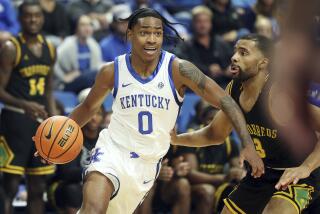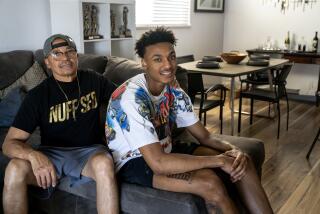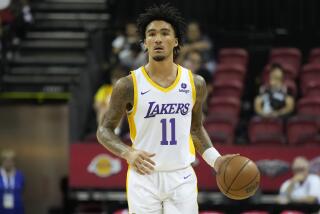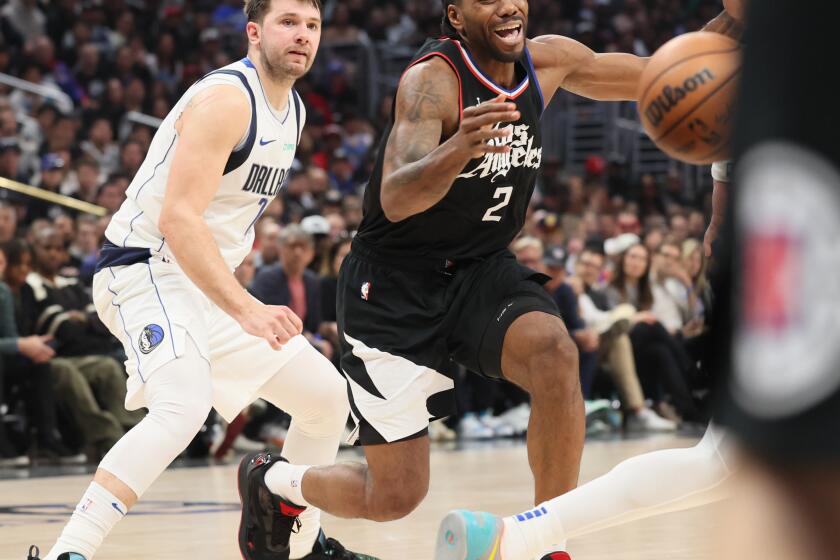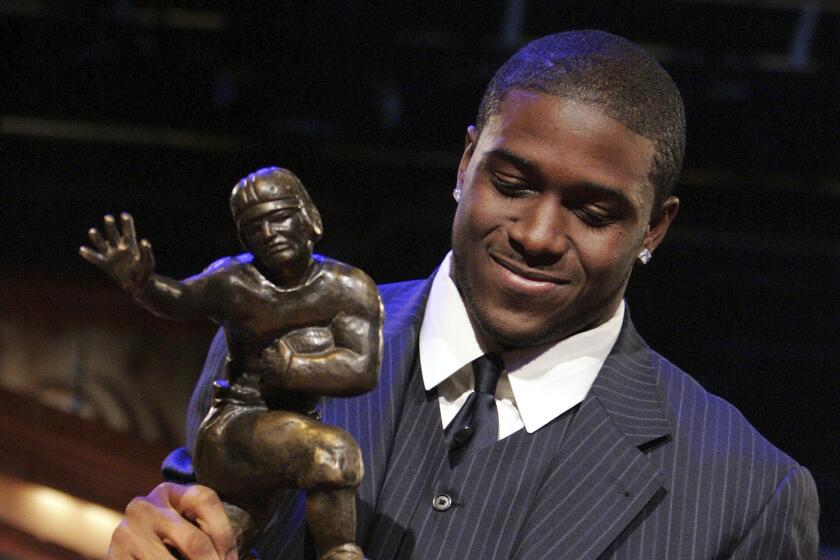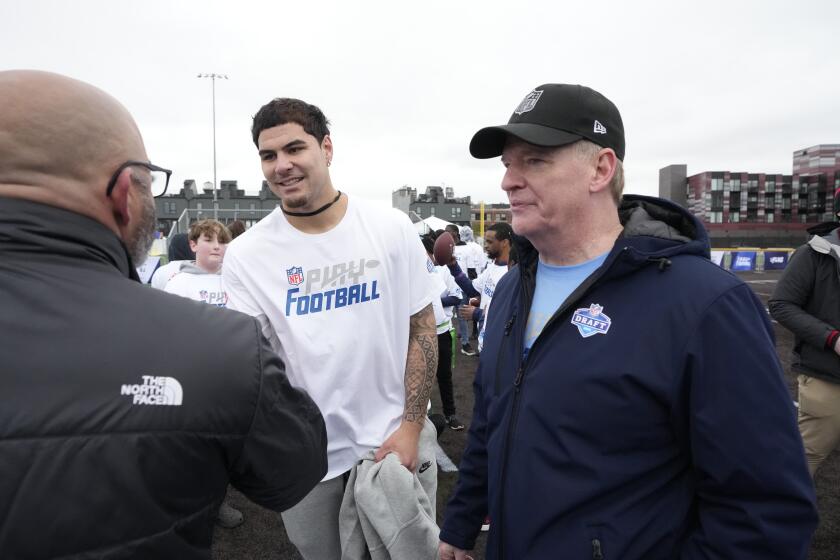NBA lockout leaves draft picks with plenty of time to fill, minus a paycheck
So, what exactly is a locked-out draft pick, one without the protective cushion of past six-figure paychecks, supposed to do in this summer climate of NBA uncertainty?
Craigslist, you say? Have hoop, will travel.
Well, one problem. Local listings in June featured one job teaching basketball to children at apartment communities for $15 an hour and another casting for a short comedy commercial “spoofing LeBron James.”
(Oddly, basketball skills were not required for that half-day shoot, paying $75.)
At least those gigs, unlike many listings, actually paid.
Kidding aside, the serious issue in the early days of the NBA lockout is that the recently selected draft picks are the most immediate and visible victims.
If this were a normal summer, Lakers rookies Darius Morris and Andrew Goudelock and Clippers rookies Trey Thompkins and Travis Leslie would be working hard this week in practice sessions to get ready for the Summer League in Las Vegas, which had been scheduled to open on Friday.
That’s where they would have received a platform of valuable exposure through NBA TV, and in front of a convention of NBA executives. And, likewise, teams could resume the evaluation process, say, the Clippers getting early information on how Leslie rates compared with Willie Warren, who is coming off his rookie season.
Instead, some of the draftees are considering going back to college to work on finishing their degrees, holding basketball camps or putting themselves in areas where there are a lot of NBA players on hand.
Minnesota Timberwolves forward Derrick Williams, who was the No. 2 overall pick from the University of Arizona, might very well end up doing all of the above.
Williams was contemplating going back to summer school at Arizona to work on his bachelor’s degree, possibly in business, fulfilling a promise to his mother.
He said he might ask for an advance from the trading card company, Panini America, that signed him to an exclusive deal, as well as maybe host camps in Tucson and in La Mirada, where he grew up.
“If I do that, I ought to be good,” Williams said. “If I need more, I can take out a line of credit or whatever, but it’s not like I’m going to need much.”
The players with major agencies obviously have more options at their disposal. Williams is represented by Landmark Sports Agency’s Rob Pelinka, who also handles Kobe Bryant and the Clippers’ Eric Gordon and Chris Kaman, and Thompkins has signed with the influential Arn Tellem of Wasserman Media Group.
“I plan on going back home and working out at home for a few weeks and then coming back to Santa Monica and working out,” said Thompkins, who played with Leslie at Georgia. “I’ll be on my own with the [WMG] trainers in Santa Monica that I was training with getting ready for the [draft] combine in Chicago.”
Potential overseas tours could be another source of income. Pelinka is in the early stages of putting together a tour of China, maybe featuring Bryant and enough players to fill two or three teams. Similarly, Wasserman Media Group is weighing China as an option, considering a multi-week tournament, the SportsBusiness Journal reported.
“Hopefully, I would be able to do that, because I’ve never been out of the country and I think that would be the best thing for me,” Williams told The Times last week.
Others are likely to stay closer to home. Leslie is planning on living with his family in the Atlanta area during the lockout, and Morris, of the Lakers, has an apartment in Los Angeles with his older brother.
“There are a lot of NBA players here,” said Morris, who went in the second round, at No. 41. “So I’ll definitely work on my game with them from time to time. But I’ll also get by myself and get a lot of shots up, doing the things that I feel like I need to do to prepare myself to capitalize on this opportunity.”
Of course, it often comes down to pleasing a certain influential family member. And the lockout is going to give Goudelock some time to do so.
He plans on finishing his degree in sociology at the College of Charleston in South Carolina, in addition to playing in some pro-am leagues.
“I’m about 12 credit hours short,” Goudelock said. “That was always something my mother and I talked about, getting my degree.”
twitter.com/reallisa
Times staff writers Baxter Holmes and Broderick Turner contributed to this report.
More to Read
Get our high school sports newsletter
Prep Rally is devoted to the SoCal high school sports experience, bringing you scores, stories and a behind-the-scenes look at what makes prep sports so popular.
You may occasionally receive promotional content from the Los Angeles Times.
